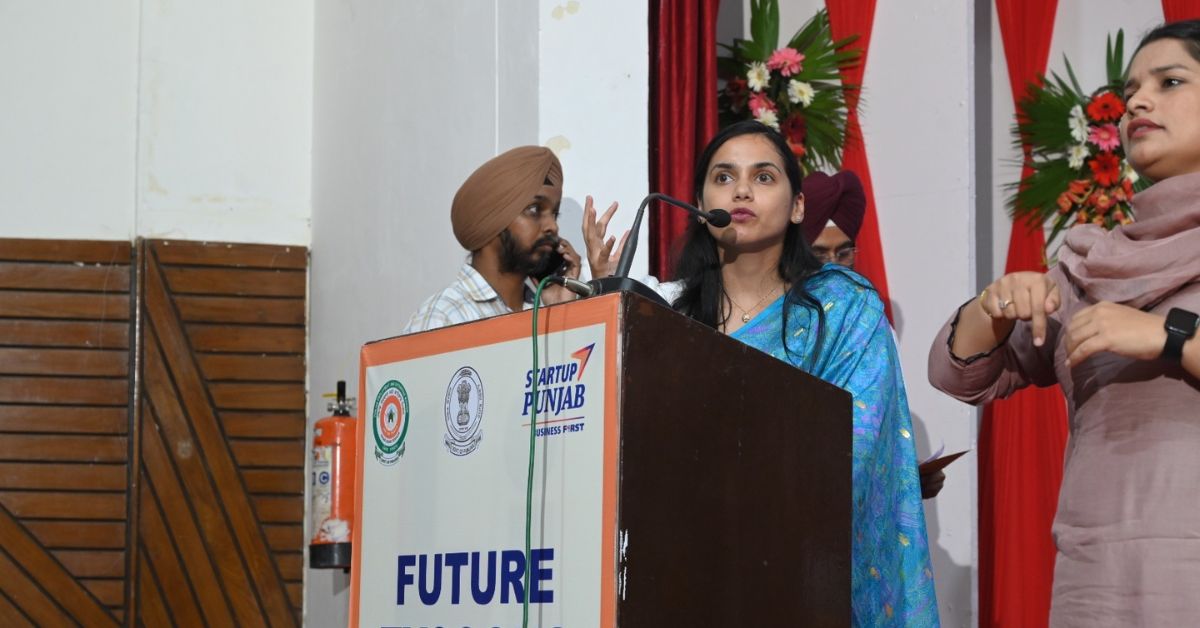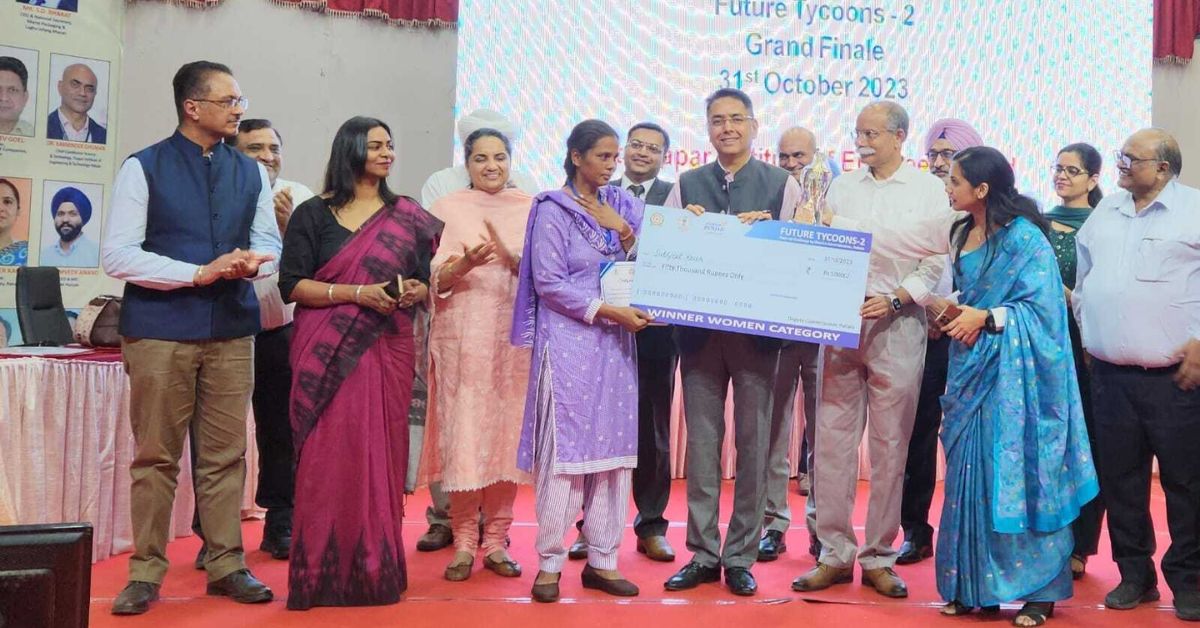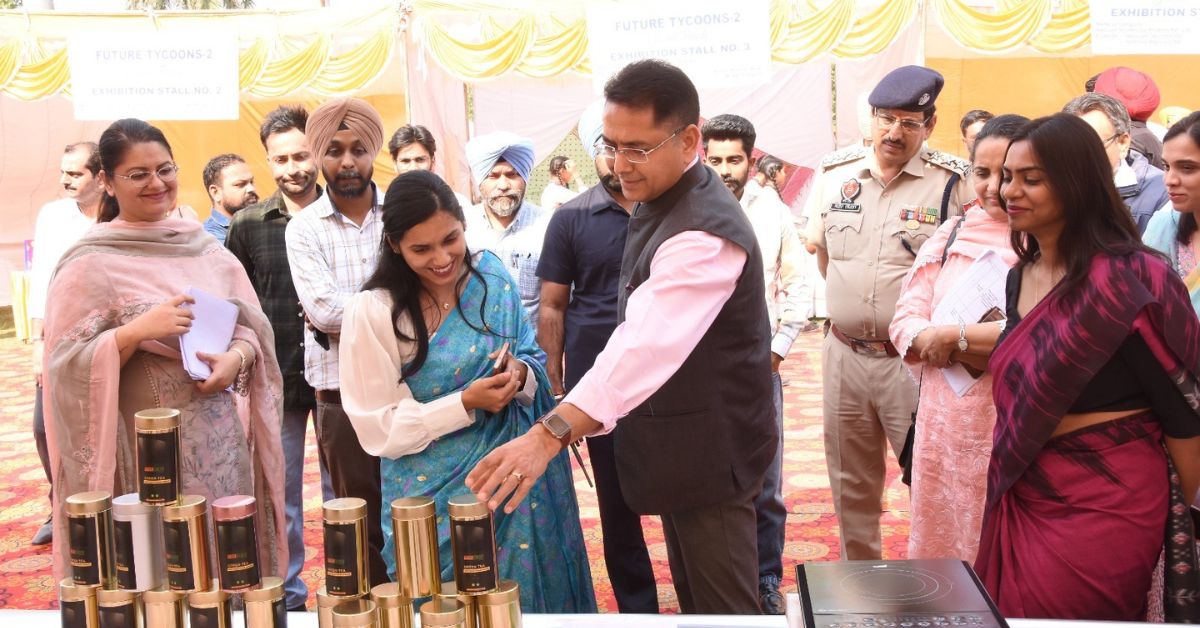Amandeep, holding a microphone, stood on a large platform in Punjab. Before her, a massive crowd, along with a panel of judges, MLAs, and government officials, eagerly awaited her speech.
“This was the first time I held a mic; I was a little nervous with all eyes on me,” Amandeep recalls. “The event was being broadcast live across the district administration’s social media platforms.”
However, stepping out of her comfort zone, Amandeep took the stage to present her business idea to a panel of judges. She leads a self-help group of 10 rural women, producing preservative-free pickles made from ingredients like mangoes, lemons, amla, bamboo, and kikar ki fali (babul dry pods), among others.
“Once I started speaking, my confidence grew, and people were genuinely interested in hearing about my venture,” shares the Patiala resident. “My business empowers rural women in self-help groups, promotes age-old recipes — especially featuring babul as a key ingredient — and uses organically grown products. This resonated with the judges and inspired others to appreciate the value of women-led networks.”

To her joy and relief, Amandeep’s efforts were recognised and rewarded. She emerged victorious, winning a prize of Rs 50,000. Determined to reinvest in her business, she utilised the prize money to purchase vegetable cutters, machines, spices, and other essentials to enhance production capacity and efficiency.
“I started this business as a small-scale operation in 2018, but this was the first time I felt our work was recognised and valued. This recognition boosted my confidence,” she adds.
Amandeep was a winner of the ‘Future Tycoons Challenge’ — an initiative that was started by IAS Sakshi Sawhney to promote entrepreneurship among those with innovative ideas but limited chances. The project emphasises empowering individuals to achieve their potential by providing them with the necessary tools and support.
Shark Tank for marginalised communities
Started in 2022, the Future Tycoons Challenge mirrors the reality TV show Shark Tank — but with a unique twist!
“We wanted to focus on the untapped potential of entrepreneurs in rural areas. Usually, marginalised people with good business ideas remain deprived of opportunities, networks, and access to incubators, just because they did not graduate from a higher educational institution,” says Sakshi, former district commissioner of Patiala.
“As the district administration, we aimed to create similar opportunities for marginalised groups — such as persons with disabilities, homemakers, and students — who were already running businesses in villages. It was high time for these communities to become job creators, not just job seekers,” she adds.
In 2022, the district organised the first edition of the Future Tycoons Challenge in Patiala. Spearheaded by Sakshi, the District Bureau of Employment and Enterprises invited applications across four categories — women, persons with disabilities, students, and open categories.

The project kicked off in Patiala and quickly gained traction, with self-help group women and street food vendors confidently presenting their business pitches. Interestingly, many had also prepared their presentations using PowerPoint!
In the first edition, the administration received 418 applications whereas the second edition saw even greater engagement with 1,108 applications. A rigorous selection process included a four-day mentorship programme designed to enhance participants’ skills and prepare them for the final pitch.
“Contestants received valuable mentorship on various aspects of business management, including social media marketing, financial modelling, branding, and intellectual property rights,” shares Sakshi.
The winners from each of the four categories received a trophy and Rs 50,000 in prize money. The initiative’s impact was profound, with participants turning their ideas into thriving businesses. “From a young girl starting a goat farm to persons with disabilities developing innovative products for the visually impaired, the initiative not only empowered individuals but also revealed the immense potential within rural communities,” adds Sakshi.

“A lot of people who doubted if they could probably make a pitch to a room full of people actually stood there with a lot of confidence and made their pitches. They learned a lot of new things, which have helped them grow their businesses both offline and online. The project also garnered support from various stakeholders, including government agencies, industrialists, and investors who recognised the value of supporting grassroots entrepreneurship,” she says.
Sponsored by Start-up Punjab and Thapar Institute of Engineering and Technology, the district partnered with Innovation Mission, Punjab; Chitkara University; District Industries Centre (DIC), Patiala; and District Bureau of Employment and Enterprises to efficiently run the programme.
Meanwhile, with her transfers to Ludhiana early this year and recently to Amritsar in September, Sakshi has been expanding the initiative to these districts of Punjab. Her vision of empowering rural talent and fostering a culture of entrepreneurship continues to resonate.
“This project is very close to my heart, especially because as an official, I only did my job of bringing all the stakeholders onto one platform. And then the magic just happened. It was just about bridging the gap and everybody met on that bridge,” she shares.
“The initiative unlocked the untapped potential of rural talent, empowering individuals to realise their entrepreneurial dreams. It brings me immense satisfaction to see them reap the rewards of their own abilities,” says Sakshi. “It wasn’t about me; it was about all those people who had long suppressed their ideas but finally found a platform to share them.”
Edited by Pranita Bhat; All photos: Ambar Bandopadhyay, district development fellow, Ludhiana
No comments:
Post a Comment